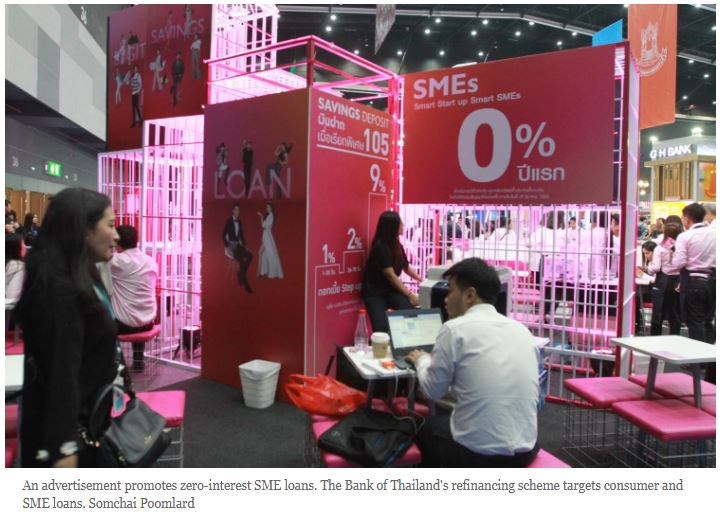Thailand: Refinancing scheme to start in Q1
The Bank of Thailand expects its refinancing scheme targeting consumer and small and medium-sized enterprise (SME) loans will begin in the first quarter next year, says a senior official at the central bank.
The bank is in talks with related parties including financial institutions to find solutions for refinancing both SME and consumer loans. Negotiations are expected to conclude early next year, said Ronadol Numnonda, deputy governor for financial institutions stability at the central bank.
The refinancing programme is the next phase of Debt Clinic, a scheme that pools unsecured bad loans owed to multiple creditors and turns them into performing loans by offering them to pay interest rates of 4-7% for up to 10 years.
Under the refinancing scheme, both individuals and entrepreneurs who have financial and debt payment discipline are expected to be entitled to participate.
Some of them have faced inconsistent liquidity or cashflow amid the sluggish economy, but they still have income and business potential, he said, noting that the central bank wants financial institutions to help these customers get through a difficult period.
Even though each bank has its own aid measures to assist burdened clients through debt restructuring, the central bank wants to see a sustainable policy in helping customers to survive in the long run under the responsible lending concept to prevent them from getting stuck in debt restructuring several times.
“Refinancing is an instrument to add debt repayment-ability of good borrowers, but there are several methodologies which are now under consideration. We need to study the pros and cons of each method in whole dimensions,” said Mr Ronadol.
The regulator has not finalised the interest rate of the refinancing programme but a rate of 7-12% is also under consideration, he said.
The central bank is also mulling adjusting credit line and debt outstanding, as well as provide flexibility in loan-loss reserve for the refinancing scheme.
However, banks’ loan-loss provision must comply with accounting standards, and Thailand Financial Reporting Standard 9 (TFRS9).
The central bank wants financial institutions to pay more attention to affordability and financial literacy of borrowers to strengthen their debt-servicing ability in the long-term and control household debt.
Commenting on the Government Savings Bank’s (GSB) plan to lower the minimum payment requirement to 3% per instalment from 10% now, he said it would help ease financial burden of borrowers.
The state-owned bank plans to launch a five-year refinancing loan for credit card debt and the interest rate could be 12% per year, down from the central bank’s maximum rate set at 20%.
Those who join GSB’s refinancing scheme must have a good payment record for 12 consecutive months and must never have been on the National Credit Bureau’s blacklist.
Meanwhile, Predee Daochai, chairman of the Thai Bankers’ Association, said the GSB’s refinancing scheme is a specific task to comply with specialised financial institution’s role.
Source: https://www.bangkokpost.com/business/1817714/refinancing-scheme-to-start-in-q1


 English
English




